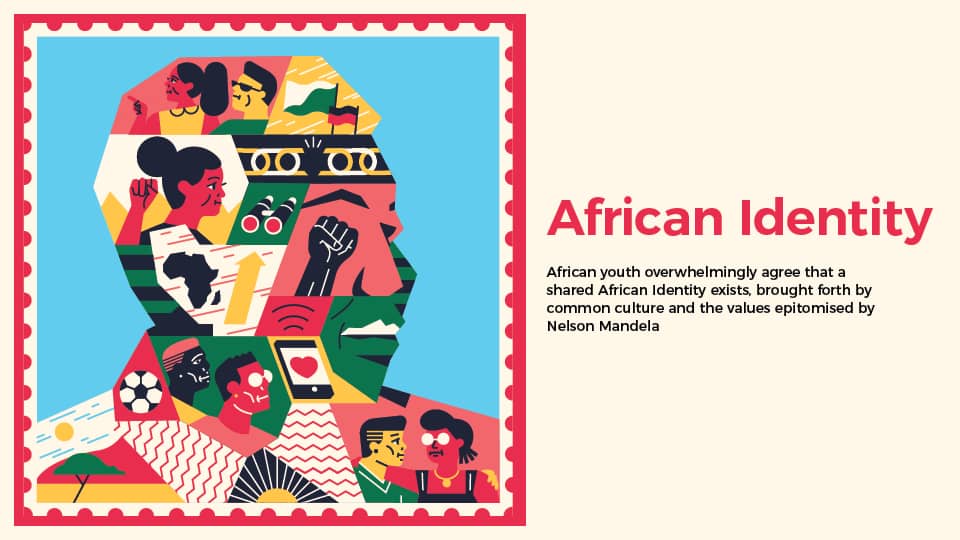While Africa Day (May 25th), the official day of the African Union (AU) marking intercontinental unity, takes place solemnly in 2020 on the backdrop of the continued outbreak of COVID-19 (coronavirus), a recent study of Africa’s youth has showcased continent-wide resiliency, institutional trust, cohesion, and collective ‘Afro-Optimism’ in facing the challenges ahead.
The results of the inaugural ‘African Youth Survey’ (AYS) offer hope that through a growing shared identity found within Africa’s young people and their united, unwavering commitment to overcoming the myriad of obstacles confronting the continent, both new and longstanding, the 21st century will assuredly be the African century.

This Pan-African research project was commissioned by the Ichikowitz Family Foundation (IFF) and conducted by PSB Research, in an effort to help develop foundations for a better global understanding of a demographic that is all too often misunderstood. The 2020 African Youth Survey is a comprehensive study of 4,200 men and women aged 18-24 across 14 sub-Saharan nations; Congo-Brazzaville, Ethiopia, Gabon, Ghana, Kenya, Nigeria, Mali, Malawi, Rwanda, Senegal, South Africa, Togo, Zambia, and Zimbabwe. Its findings suggest the continent’s next generation, collectively forming the world’s largest marketplace, bear striking similarities in their pan-African outlook and the willpower to independently determine their own futures.
Nearly eight in ten (76%) polled agreed that young people in Africa share a common identity, brought forth by common culture, shared history, and the values epitomized by Nelson Mandela. This speaks to a palpable sense of a pan-African identity amongst this emerging generation, with the highest support in West Africa (78%), Southern Africa (77%), and East Africa (69%). Ghana and Kenya are the strongest supporters of the notion (92%). On average, African youth feel more optimistic about the future of the continent than their own country’s future, with Rwanda, Ghana and South Africa being the most optimistic about Africa’s future.

Looking at the factors that will shape Africa’s identity in the future, 21% of African youth predict that war and conflict will have the biggest impact, but two-thirds list positive developments as having the biggest impact. These include the digital revolution (16%), increased freedoms (15%), a rise in prosperity (15%), and increased equality (13%).
Pan-Africanism is tempered when respondents were asked about their own identity, with around half identifying by their own country first, 17% by Africa, 17% by their tribe, 13% by race, and only 2% by political party. In addition, 60% of all respondents agreed that their local language is central to their identity.

The Survey also finds great trust in the continent’s supranational organizations such as the African Union (AU). Seven out of ten (72%) surveyed are confident that the African Union “…in its current form will be able to facilitate unity across the African continent”. Of these respondents, confidence in the AU was found to be highest amongst Rwandans (93%) and Ghanaians (90%).
Although each nation upon nation across the continent has imposed individual social distancing and travel restrictions in efforts to curtail the further spread of the coronavirus disease, six out of ten (63%) polled believe that in future, African countries are best suited to find common solutions to pressing socioeconomic challenges.
Such Pan-Africanism can also be found at the community level, where young people in Africa are deeply embedded in their local communities, which many nonetheless describe as ethnically, religiously and economically diverse, according to the Survey’s findings. Three-quarters polled (75%) believed that their country belongs to all who reside in it, including refugees, eschewing tribal and other forms of xenophobia and discrimination. Young Africans are committed to their local communities and see a future for themselves on the continent as 69% prefer to stay in their communities instead of moving elsewhere.

This cohesion and commitment to societal growth correlates to a rising sense of ‘Afro-Optimism’ that was found to be a recurring theme throughout the results of the Study, with six in ten (65%) polled believing the 21st century will be the “African Century”.
Industrialist, philanthropist and Ichikowitz Foundation Chairman, Ivor Ichikowitz, stated that, “On this particular Africa Day, it is extremely important to celebrate our continent’s historic, groundbreaking achievements, our respective struggles for independence and those that fought for them, the work of our institutions such as the African Union in their continued drive for greater societal cohesion and socioeconomic development. Working together, we are capable of conquering monumental challenges, including the COVID-19 outbreak. At this time, we must also consider the needs of our fellow Africans, our neighbors; the many who may feel helpless and isolated, providing any support we can to those on the frontlines of this global pandemic.

“United, we will continue to build a stronger, more prominent Africa on the world stage and I have no doubt, our next generation will be leading that charge. The results of the Survey confirm it.”
